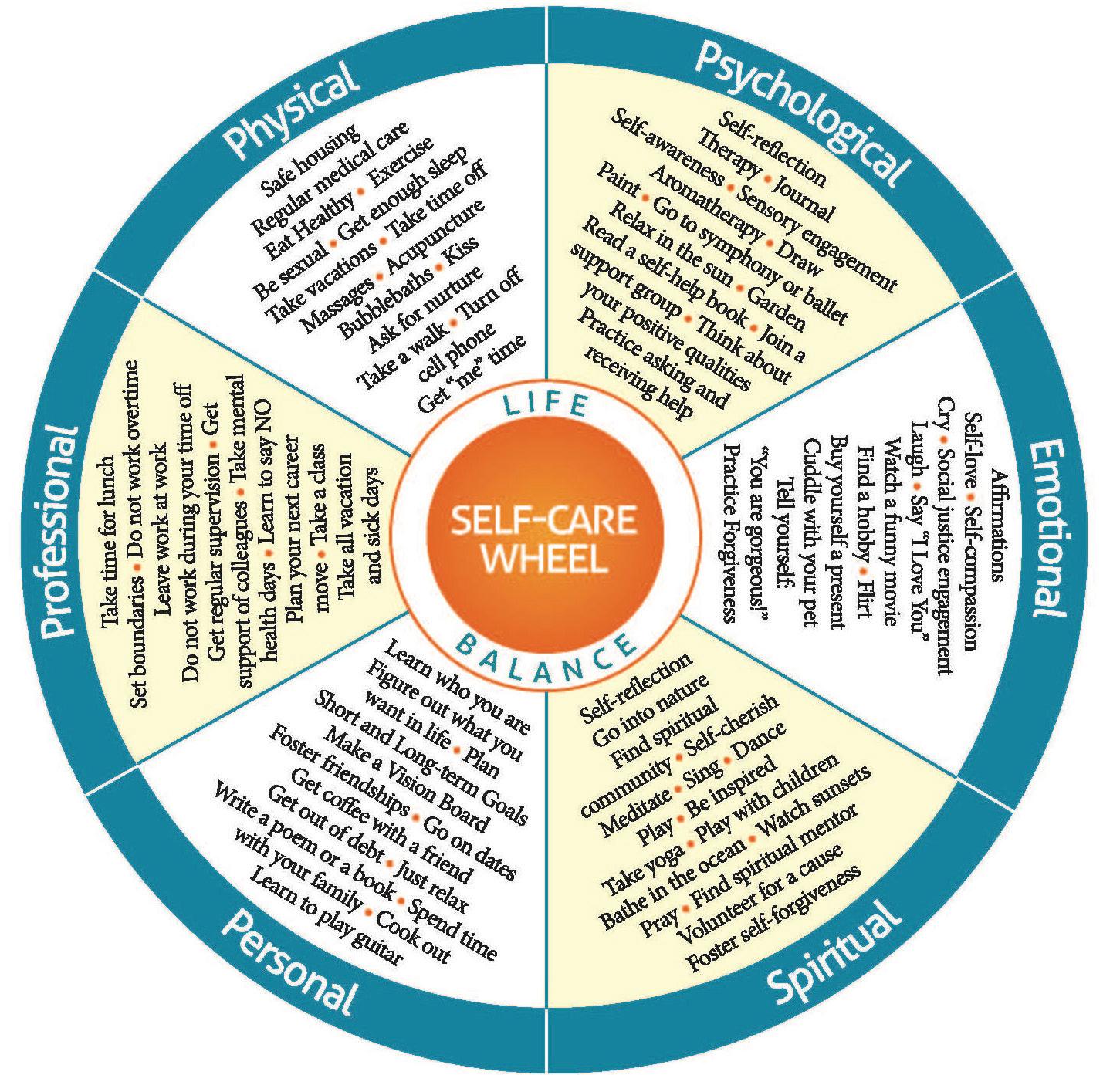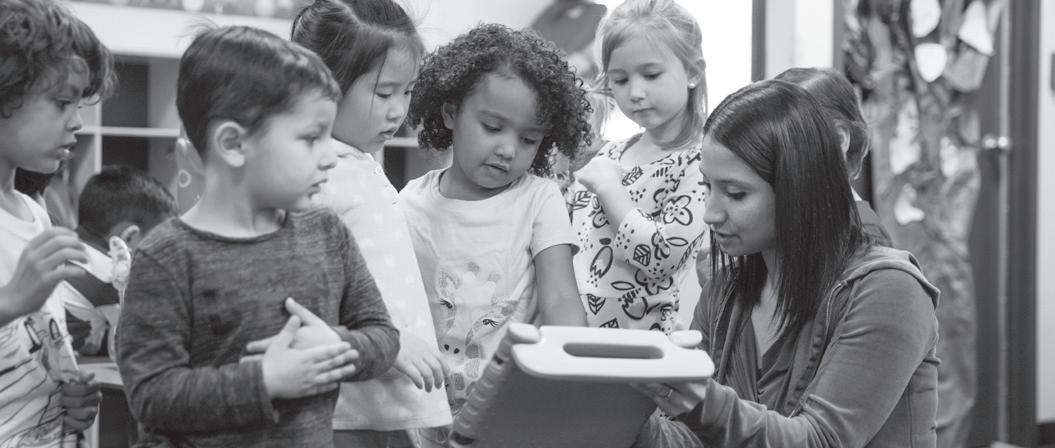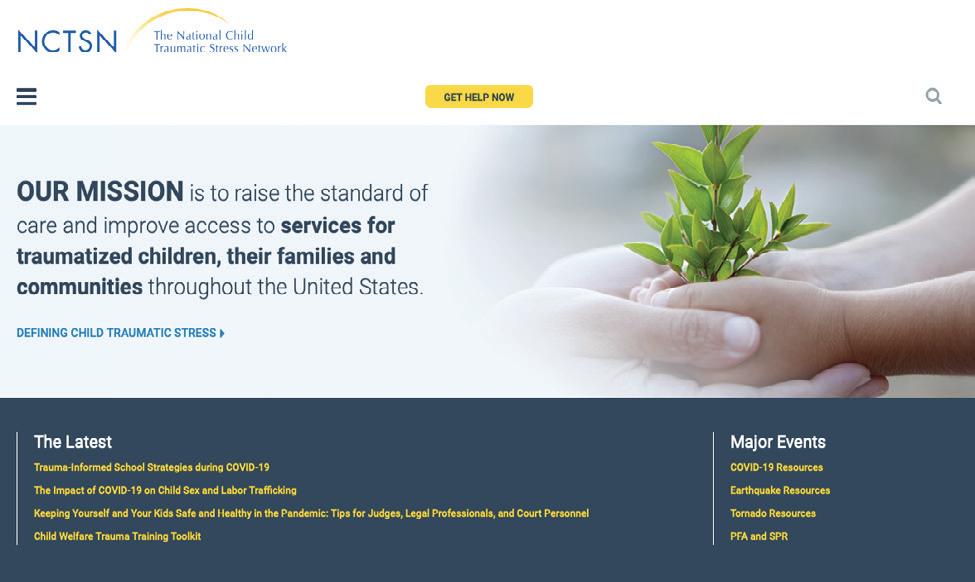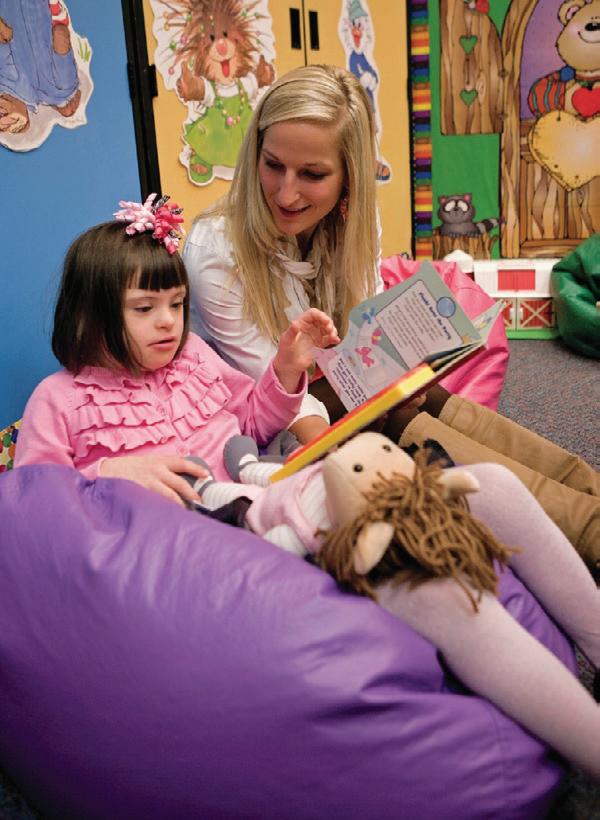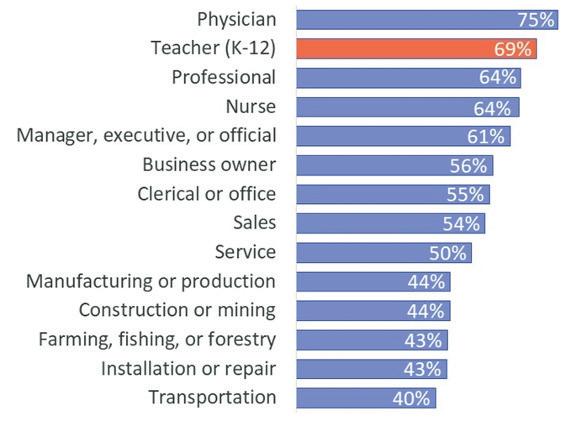Claire Gough English-Language Arts Teacher, Chapel Hill-Carrboro City Schools, North Carolina
I
will never forget the feeling of waiting for the first bell on my first day of teaching. With coffee in hand, a slideshow prepped, and “Welcome to 8th Grade ELA” written across the board, I stood at my door brimming with eager anticipation feeling I was as prepared as I could ever be, yet still feeling totally inadequate for what lay ahead. The list of “what ifs” streaming through my head was daunting, and I quickly realized that suddenly I was the only adult, the sole authority in the room. Like many first year teachers, I share the sentiment that “you’ll never be fully ready, because you have to learn by doing.” No matter how much you read, role play, or theorize, and regardless of the quality of your student teaching experience, much of what must be learned about being a teacher can only come from teaching. Making quick decisions, fielding questions from students, teaching a lesson that completely flops-- these are the moments that sharpen you as an educator. Much like what we ask of our students, sometimes you just have to try your best, learn from your failures, then try again. Looking back on my first year, things I learned from my colleagues or from my own failures proved to be invaluable experiences that have immeasurably impacted my life as a teacher. Many of these lessons centered around the categories below, and while the suggestions below are far from exhaustive, they have the potential to make your teaching more manageable and more enjoyable. Teaching is fun! ü
Self Care: As teachers our jobs extend far beyond teaching the curriculum. We are managers, counselors, nurses, etc. All of these jobs within a job can take an emotional, mental, and physical toll. As a first year teacher it is imperative that you pay attention to the importance of self care. Model healthy coping strategies in the midst of stressful situations. Learn to balance work and fun. Burnout is normal, even expected. Take steps to focus on your physical, mental, and emotional self and ignore the natural impulse to view self care as selfish. Taking care of yourself is never selfish and it does not interfere with your students’ learning. In fact, the healthier you are, the better able you will be to meet the needs of your learners.
Tip: When you are feeling burnt out or overwhelmed, it’s likely that your students may be feeling the same way. Schedule a reading or reflection day to provide time for both you and them to recharge.
ü
Community: The sense of community is one of the most critical aspects of the teaching profession. Be intentional about getting to know your coworkers. Ask them about their strengths as teachers. Learn from them and look to them. Likewise, make intentional efforts to cultivate community within your classroom. Commit time to getting to know your students and their families. Let your students get to know you, too. Investing the time to build relationships and classroom community lays the foundation for a successful school
year for you, your students, and their families. Tip: Take time to call or email parents at the beginning of the school year. A simple, “tell me about your child” will give you precious insights and help to establish positive relationships with parents.
ü
Create a learning space: Be thoughtful about setting up your classroom. You will spend countless hours of your life within those walls; create a space that is inviting, inspiring, and comfortable for you and your students. Consider how students will engage with the space and how the physical layout of your room will support and encourage their learning, wonderings, and exploration. Does the learning environment make them feel welcomed? Do they see themselves represented within the classroom? Is it a safe space where they can fail forward?
ü
Consistency: At times, the first year of teaching may feel chaotic. Responding to behavioral difficulties and concerned parents can be overwhelming. To alleviate some of the pressures that you feel, embrace the phrase, “I will get back to you.” Seek guidance from your peers on the best ways to respond, continue with your established procedures, and circle back with parents with confident and accurate responses to their questions. It is okay to buy yourself the time you need to ensure that your classroom management plan and your communications are consistent with school policies. Students and families appreciate predictability, consistency, and honesty.
Navigating Your First Year of Teaching
Reflections on the First Year of Teaching
Reflect, Revise, Repeat: During your first year of teaching, take time to reflect on your practices. If students are not grasping content, consider what may be creating barriers for them. Take risks. Incorporate students’ cultures and interests into your lessons. Make your content and teaching examples applicable to students’ lives outside the classroom. Try something new. Ask questions. Teachers should always be the lead learners in their classrooms. Regardless of the ups and downs in the first two years of teaching, never forget that what you do matters. The wise words of Maya Angelou help me remember my “why” and have become a guiding light for me as a teacher, “I’ve learned that people will forget what you said, people will forget what you did, but people will never forget how you made them feel.”
...you will never learn or discover without asking questions. Don't be afraid to seek out help. 95 American Association for Employment in Education




